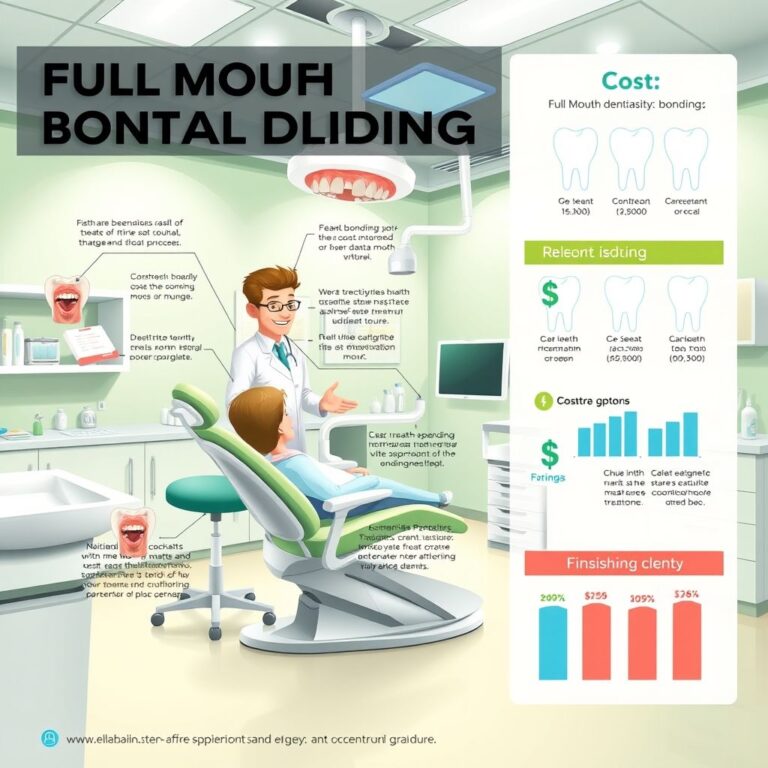Composite Bonding Cost in Essex
Composite bonding has become an increasingly popular cosmetic dental procedure, especially for those looking to enhance their smiles without undergoing invasive treatments. In Essex, this trend is no different, with many individuals seeking to improve the appearance of their teeth through this affordable and minimally invasive procedure. This article will explore everything you need to know about the cost of composite bonding in Essex, including factors affecting the price, what to expect during the treatment, and how to find the best clinic for your needs.

Understanding Composite Bonding
What is Composite Bonding?
Composite bonding is a cosmetic dental procedure that involves the application of a tooth-colored resin material to the surface of the teeth. This resin is carefully shaped and polished to match the surrounding teeth, effectively improving the appearance of chipped, discolored, or misaligned teeth.
The Procedure: What to Expect
- Consultation: The first step is an initial consultation with a dentist, where you’ll discuss your goals and the dentist will assess your suitability for the procedure.
- Preparation: Unlike other cosmetic procedures, composite bonding usually requires minimal tooth preparation. The dentist may slightly roughen the surface of the tooth to help the bonding material adhere better.
- Application: The composite resin is applied in layers and then hardened using a special light. The dentist will then shape and polish the resin to achieve a natural look.
- Aftercare: Composite bonding requires regular dental hygiene practices, such as brushing and flossing, to maintain its appearance.
Factors Affecting the Cost of Composite Bonding in Essex
1. The Complexity of the Case
The cost of composite bonding can vary significantly depending on the complexity of the procedure. Simple cases involving minor chips or discoloration will generally cost less than more complex cases that require reshaping or covering larger areas of the tooth.
2. The Number of Teeth Treated
The more teeth you have bonded, the higher the overall cost. However, some dental clinics may offer discounts for multiple teeth treatments.
3. The Experience of the Dentist
Experienced and highly qualified dentists in Essex may charge more for their services. However, investing in a skilled professional can ensure better results and minimize the risk of complications.
4. The Location of the Clinic
Dental clinics located in more affluent areas of Essex may have higher operating costs, which can be reflected in the price of their services.
5. Additional Treatments
Sometimes, composite bonding is combined with other treatments, such as teeth whitening or veneers, which can increase the overall cost.
Average Cost of Composite Bonding in Essex
| Number of Teeth Treated | Average Cost Per Tooth (GBP) | Total Cost (GBP) |
|---|---|---|
| 1 Tooth | £150 – £300 | £150 – £300 |
| 2-4 Teeth | £140 – £280 | £280 – £1120 |
| 5-8 Teeth | £130 – £260 | £650 – £2080 |
| 9+ Teeth | £120 – £250 | £1080 – £3000+ |
Note: Prices can vary depending on the clinic, dentist, and specific needs of the patient. Always consult directly with the clinic for the most accurate quote.
How to Choose the Right Clinic for Composite Bonding in Essex
1. Research and Reviews
Look for clinics with positive reviews and testimonials. Online platforms such as Google Reviews and Trustpilot can provide insights into the experiences of previous patients.
2. Check Qualifications
Ensure that the dentist performing the composite bonding is qualified and has experience in cosmetic dentistry. Membership in professional bodies such as the British Academy of Cosmetic Dentistry (BACD) is a good sign of their commitment to high standards.
3. Consultation Process
A good clinic will offer a thorough consultation process, including a detailed discussion of your goals, a comprehensive examination, and a clear explanation of the procedure and costs involved.
4. Technology and Techniques
Choose a clinic that uses the latest technology and techniques in composite bonding. This can lead to better results and a more comfortable experience.
Benefits of Composite Bonding
- Minimally Invasive: Composite bonding requires little to no removal of the tooth’s natural structure.
- Cost-Effective: Compared to other cosmetic treatments, composite bonding is relatively affordable.
- Quick Results: The procedure can often be completed in a single visit.
- Reversible: Unlike veneers, composite bonding can be reversed if needed.
Potential Risks and Considerations
- Staining: Composite resin can stain over time, especially if you consume staining substances like coffee, tea, or tobacco.
- Durability: While durable, composite bonding may not last as long as other cosmetic treatments like crowns or veneers. It typically lasts 5-7 years with proper care.
- Maintenance: Regular check-ups and good oral hygiene are essential to maintaining the appearance of bonded teeth.
Alternatives to Composite Bonding
1. Veneers
Veneers are thin shells of porcelain or composite resin that cover the front surface of the teeth. They are more durable and stain-resistant than composite bonding but are also more expensive.
2. Teeth Whitening
If discoloration is your primary concern, professional teeth whitening may be a more suitable option. This can be combined with bonding for optimal results.
3. Crowns
For severely damaged or decayed teeth, crowns may be a better option. They cover the entire tooth and provide greater protection and durability.
Conclusion
Composite bonding is a versatile and cost-effective cosmetic dental treatment that can significantly enhance the appearance of your teeth. In Essex, the cost of composite bonding varies based on several factors, including the complexity of the case, the number of teeth treated, and the experience of the dentist. By carefully selecting the right clinic and understanding the associated costs, you can achieve a beautiful smile that boosts your confidence.
FAQs
Q1: How long does composite bonding last?
A1: Composite bonding typically lasts between 5 to 7 years with proper care. The longevity can vary based on factors such as oral hygiene, diet, and the skill of the dentist.
Q2: Can composite bonding be whitened?
A2: No, composite resin does not respond to whitening treatments. If the bonded area becomes discolored, it may need to be replaced.
Q3: Is composite bonding painful?
A3: Composite bonding is generally painless and usually does not require anesthesia. However, some patients may experience minor discomfort during the procedure.
Q4: Can I eat normally after composite bonding?
A4: Yes, but it’s advisable to avoid very hard or sticky foods that could chip or dislodge the bonding material.
Q5: How do I care for my bonded teeth?
A5: Maintain good oral hygiene, avoid staining foods and drinks, and visit your dentist regularly for check-ups and cleanings.


